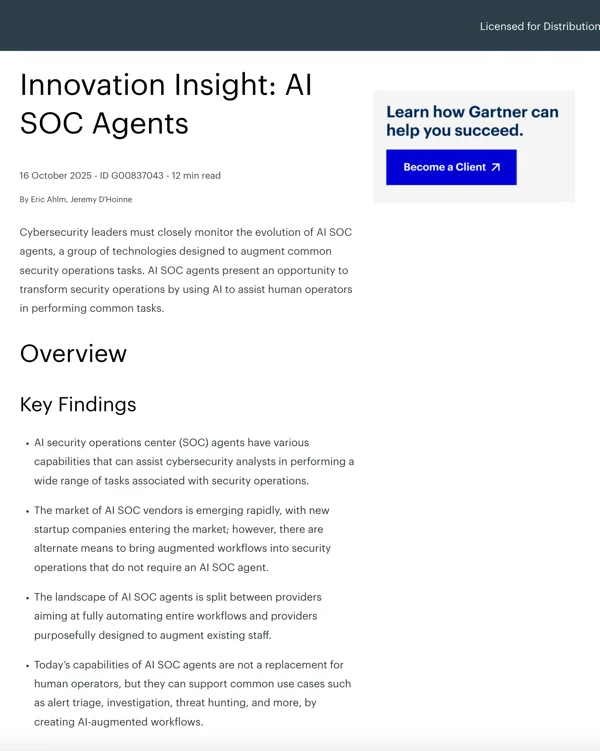
-min.webp)
In security operations, confidence comes from clarity. When a SOC analyst escalates an alert or closes one out, they can explain exactly why. When an AI SOC Analyst makes the same call, it needs to meet that same standard. Not for the sake of curiosity, but for credibility, accountability, and actionability.
Explainability is what makes that possible. Without it, AI becomes a black box. And in a SOC, black boxes don’t fly.
SOC workflows are review-driven. Triage, enrichment, escalation; every step is built for verification. Teams collaborate, review each other’s work, and hand off investigations with full context. If AI is going to participate in that workflow, it has to speak the SOC’s language.
Explainable AI provides a record of how a conclusion was reached: what data was reviewed, which questions were asked, and what evidence supported the final outcome. It makes AI actionable and worthy of trust.
When AI decisions can’t be explained, trust breaks down. In real-world SOCs, we’ve seen this lead to:
The result? AI becomes a bottleneck instead of a force multiplier.
{{ebook-cta}}
An explainable AI SOC Analyst goes beyond just giving an answer and actually walks the team through its thinking. This means:
The AI acts like a senior analyst: fast, methodical, and transparent. That transparency enables peer review, audit trails, and cross-team collaboration.
Explainability isn’t just for AI validation, it makes humans better, too. With clear reasoning from AI, analysts can:
The result is a faster, smarter, more confident SOC.
Not all AI SOC platforms are built for explainability. Here's what to ask:
If the answers are vague or missing, trust will erode fast.
SOC analysts don’t take action based on vibes. Neither should AI. Explainability is what makes AI decisions defensible, reviewable, and ultimately usable. It's how you get from "AI did this" to "Here's exactly why."
Without that, AI is just noise. With it, AI becomes a real partner to the SOC.
If explainability is non-negotiable for your team, it’s time to see what good AI actually looks like. Prophet AI investigates every alert like a seasoned analyst. Transparent, fast, and auditable. Request a demo and see how explainable AI can supercharge your SOC without sacrificing control or confidence.
Explainability in an AI SOC Analyst is the ability to show how the AI reached its conclusion during an investigation, including the data it reviewed and the reasoning it followed.
Explainability is important in security operations because it enables analysts and engineers to verify, trust, and act on AI-driven decisions without guessing how they were made.
You can't fully trust AI SOC platforms without explainability because there is no way to validate or audit the AI’s decisions, which increases operational and compliance risk.
Explainable AI helps in alert triage by showing what evidence it reviewed and how it reached its conclusion, so analysts can quickly verify and move forward.
Examples of explainability in SOC workflows include evidence trails, summaries of AI reasoning, questions asked during investigation, and mapping to frameworks like MITRE ATT&CK.
If AI decisions can’t be explained, analysts will waste time second-guessing them, managers won’t trust them, and audit trails will break down.
Explainability improves detection engineering by showing how alerts were interpreted, helping engineers understand which detections need refinement or tuning.
In explainable AI security tools, look for transparent logic, evidence review, reasoning summaries, auditability, and support for custom investigative logic.
Yes, explainability is often required for SOC compliance because it supports defensible decision-making and ensures actions can be reviewed or audited.
Get Gartner's guidance on evaluating and adopting AI SOC agents

